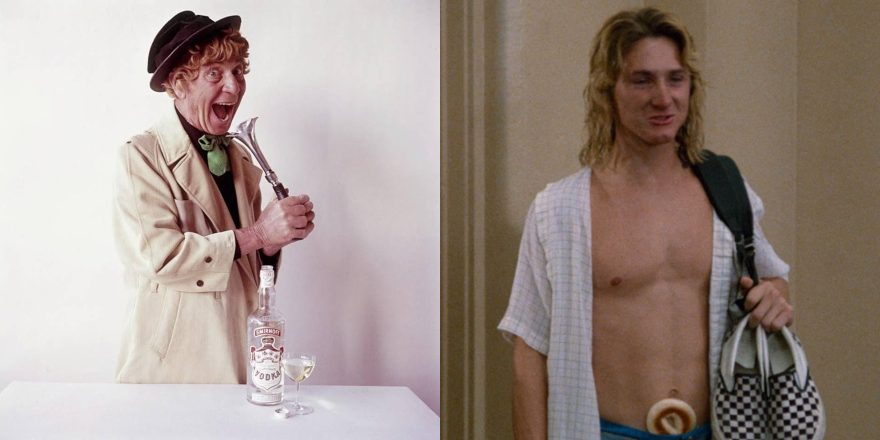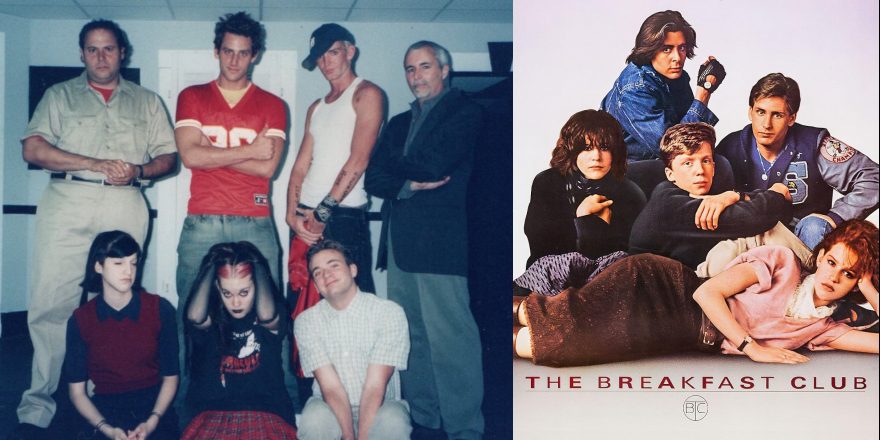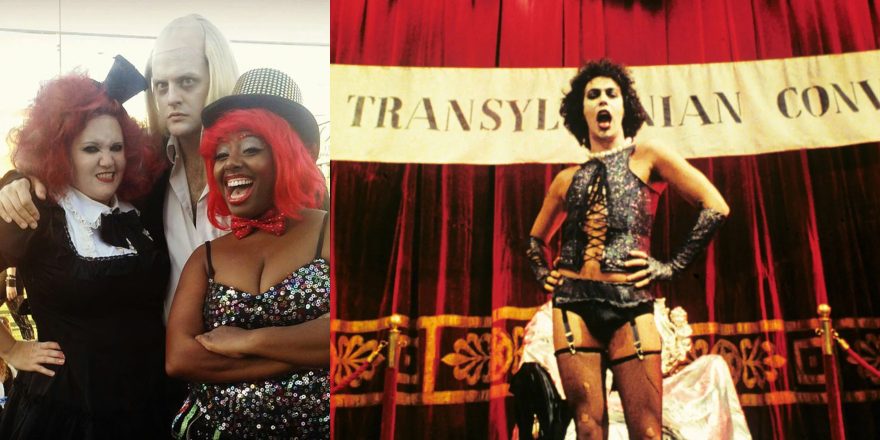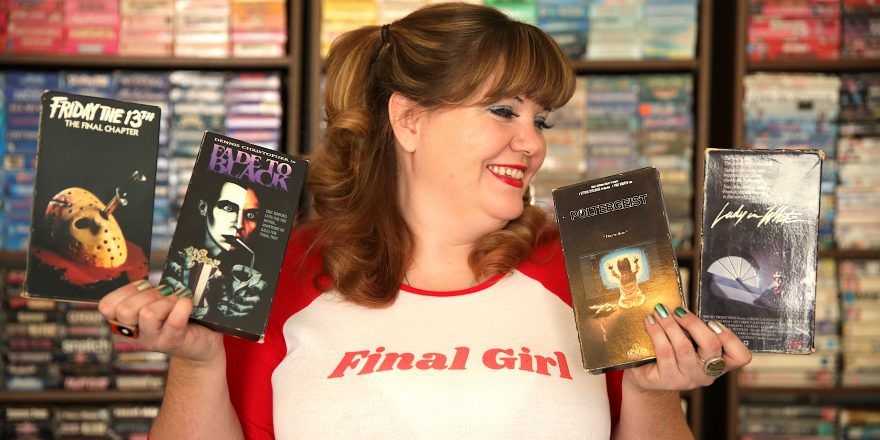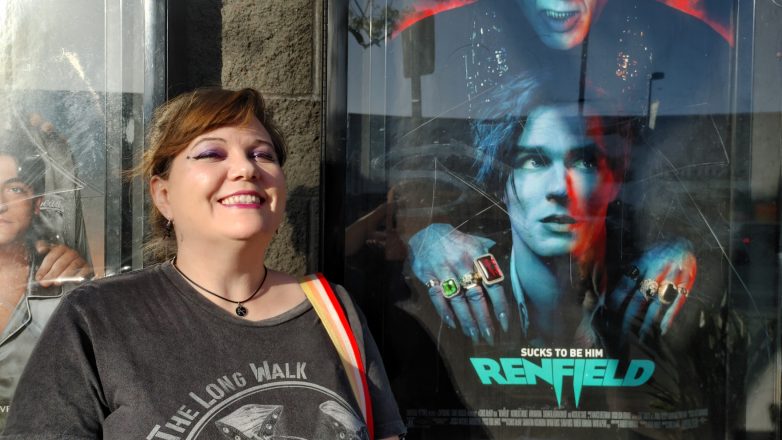If you had been walking with me through the film department at the University of California Irvine in 2001, you might have witnessed people greeting me with “Hey, Harpo!” or “Yo! You’re that Spicoli girl!”
Let me tell you why.
I studied both drama and film in college. The film department at UC Irvine was not hands-on technical filmmaking, but study of film. I had always loved movies, but studying it academically – as anyone who has done so will tell you – changes the way you see cinema.
The whole point of every class was to break down a film into tiny pieces – paying close attention to the camerawork, the production design, the lighting, the score, the editing – and noticing how if we take any one of those elements away, it changes everything. Learning about mise-en-scène, the auteur theory, about independent vs. studio movies, international film, cinema phases, genres and themes.
I loved those classes, being able to spend hours learning and talking about film was absolute heaven to me. Even if I didn’t like the movie itself, I was still interested in hearing about the making of, history and meaning behind it, and would be sure to ask myself why I didn’t like it, trying to look at the film through a critical lens, instead of personal one.

One of my teachers insisted we watch every movie twice. We would go in completely blind and watch the film with no prior knowledge, then talk about it and watch it again. Sometimes this was interminable, if I didn’t like the film the first time; sometimes it was revelatory.
One of my first French New Wave films was Godard’s Masculine Feminine, and upon first viewing in that class, I was confused by it. I’d never seen a film like it before. It was disconnected, characters disappeared, there wasn’t a strong plot, everything seemed random. But after talking about it and watching it the second time, I realized it was mimicking real life – everything is random – a lightbulb went on in my head and since then, it’s become one of my favorite films, along with the French New Wave genre itself. (Not to mention Jean-Pierre Léaud!)
Once, in class of perhaps 150 students, I was the only person to like Richard Linklater’s Slacker. Literally just me. I had watched the film with a huge grin on my face, enchanted and awed by its simplicity and creativity. The class dragged on the film so hard that I wound up giving an impassioned speech to the entire class defending its brilliance, which I might count as my finest film school student moment – if it wasn’t for Harpo & Spicoli.
My senior year, I took a two-semester, wide-ranging Film Comedy class – one semester was 1895 to 1960, then 1960 to the present. Gloria Monti was my professor. She is from Italy, and looked so much like a “film professor” that I was immediately intrigued. Beautiful face, adorable smile, jet black hair disarrayed in an almost Tim Burton-like manner, fashionable thick-framed glasses, red lipstick and a long dark coat. Way too cool for Irvine. Her accent and sense of humor made each class an absolute delight, and I loved attending every one.

Around Halloween, we had gone up through Marx Brothers in the Film Comedy class, and we were at that point talking about Duck Soup. My parents came to visit me for Halloween that year, and their costumes were, coincidentally, Groucho and Harpo Marx. Since I had a film class on October 31, I asked my mother if I could borrow her Harpo costume – complete with top hat, wig, props and the whole shebang – and wore it to class that day, hamming it up with all of the gags we had seen in the movie.
Professor Monti was totally delighted, and announced that from then on, anyone who wore a costume from the movie that we watched in class would get extra credit. (She’s still teaching and that extra credit rule is still in effect – you’re welcome, students!)
And she called me “Harpo” from then on out.
Fast forward to the next semester, when we were covering Fast Times at Ridgemont High. I purposely came to class late, with my checkered vans over my shoulder and a bagel stuffed into the front of my pants and yelled “Hey! There’s no birthday party for me here!” – much to the class’ joy. About 15 minutes later, I had my best friend deliver me the double cheese and sausage pizza, and tipped her in pitch-perfect Spicoli tones: “For you, dude.”
The news of that cosplay class disruption got around school and the whole thing was the talk of the film department for a few weeks – so I gotta count that as my finest film student moment. (My final essay that year was hypothesizing, using Cameron Crowe’s novel as a reference, that everyone in Fast Times is a virgin except for Stacy, with passages and quotes to back up my theory. I got an A.)

Professor Monti and I stayed friends after I graduated and we still see each other from time to time. She says she knew I was trouble immediately. Remember, she’s Italian, and when she pronounced my last name the first day during roll call, she said it as you would in Italy: “Mar-kay-zee.” I shot back, “No, it’s Mar-kessy!” (the Americanized pronunciation). Being corrected for saying something the correct way certainly threw her.
I think she’s an incredible woman, with a deep love of film, and I’m proud to now call her my friend. Thank you to her for the hours of joy she gave me that year.
Although I do wish that I had learned the technical aspects of filmmaking in college, I’m so glad I got the film education that I did, and that film criticism is still such a big part of my life! I had so much fun in those classes, it didn’t even feel like schoolwork. I’ve always wanted to have a super cool nickname, and knowing the origin behind them, I think Harpo and Spicoli count as two of the coolest.



